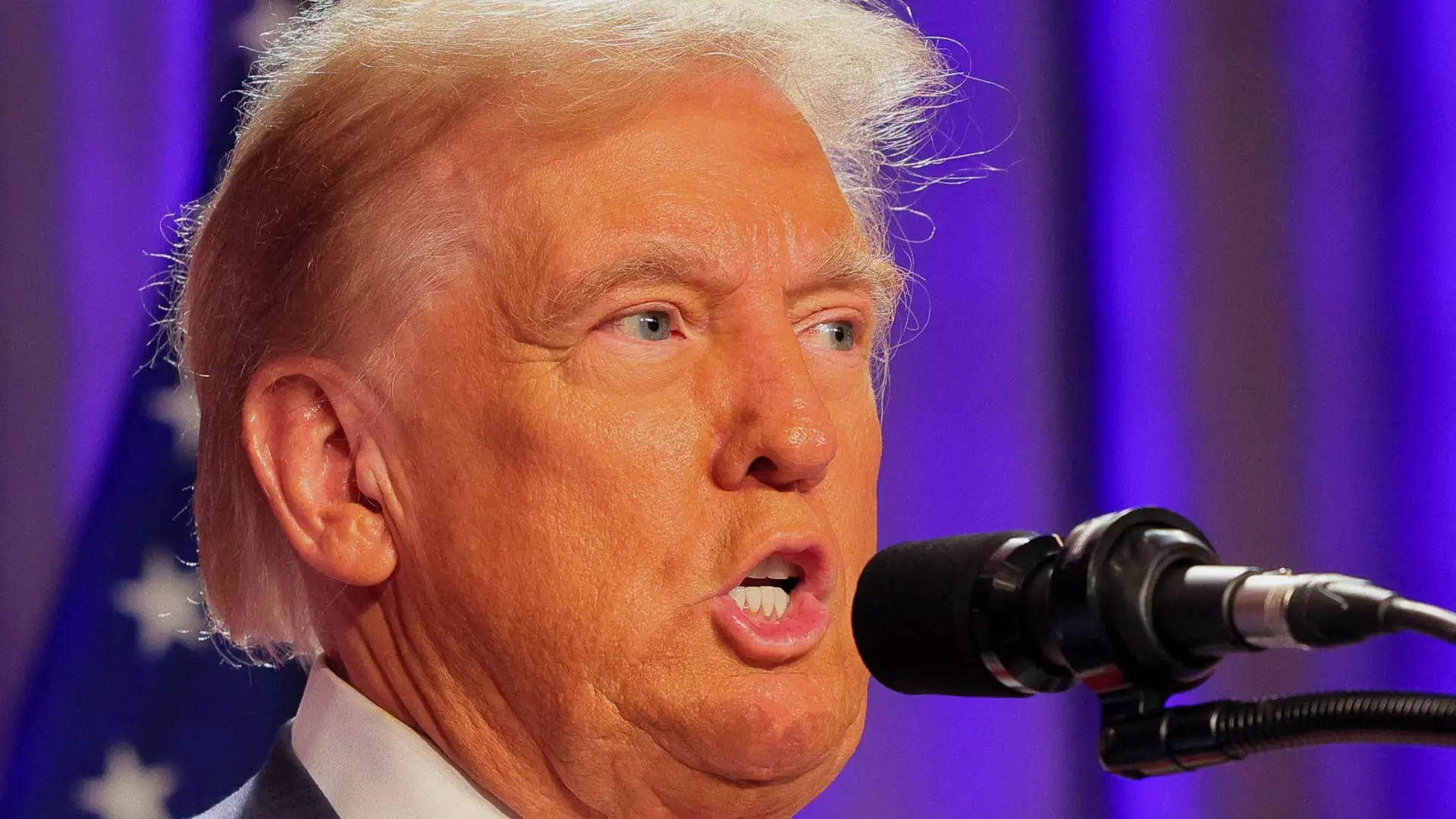The landscape of international relations is often marked by shifting allegiances, ever-changing policies, and the recalibrating of alliances. Following his recent interview with NBC’s “Meet the Press,” President-elect Donald Trump’s remarks about military aid to Ukraine and his broader foreign policy strategy provided a window into his administration’s potential approach regarding international conflicts. This analysis delves deeper into Trump’s statements, their implications for Ukraine, NATO, and relations with major global powers like Russia and China.
Trump’s assertion that Ukraine may receive “possibly” less military aid upon his assuming office raises critical questions about the future of U.S. support in the ongoing conflict with Russia. He pointed out the significant difference in funding between the United States and Europe, stating, “We’re in for $350 billion, and Europe is in for $100 billion.” This disparity highlights not only the financial commitment but also the responsibilities of NATO allies in contributing equitably to global security endeavors. By questioning Europe’s financial contributions, Trump appears to advocate for a recalibration of expectations within NATO and suggests that a reevaluation of military aid is necessary, particularly if European nations do not match U.S. spending levels.
Additionally, by labeling Ukrainian President Volodymyr Zelenskyy as “maybe the greatest salesman of any politician that’s ever lived,” Trump casts a shadow over the legitimacy and depth of Ukraine’s military needs. This characterization reduces a complex geopolitical situation to a marketing narrative, potentially undermining the urgency of military support based purely on rhetoric rather than the dire reality the country faces in the wake of Russian aggression.
NATO and the Burden of Defense
Trump’s enduring skepticism toward NATO reflected in his commentary, underscores a broader trend in American foreign policy—a demand for greater accountability among allies. He reiterated a familiar argument, suggesting the U.S. should not shoulder the bulk of NATO’s financial responsibilities unless European nations increase their contributions. This stance not only questions the foundational principle of collective defense within NATO but also risks sowing discord among member nations that could have far-reaching consequences for global security.
His call for Europe to “equalize” its military contributions raises concerns about cooperation and solidarity within the alliance. The possibility of Trump’s administration adopting a more isolationist or transactional approach to NATO could threaten the unity necessary to confront adversarial actions from nations like Russia, putting global stability at risk.
Following his meeting with Zelenskyy in Paris, Trump took to social media to advocate for an immediate ceasefire and negotiations, suggesting that he might position himself as a peacemaker in the Russia-Ukraine conflict. While his claim of being able to broker peace within a day reflects a bold diplomatic ambition, it is also reminiscent of his previously carefree assertions regarding international complications. Such statements require scrutiny, as resolving entrenched conflicts often demands nuanced understanding and sustained commitment rather than swift fixes.
Trump’s familiarity with Russian President Vladimir Putin, which he touts as an asset in negotiations, warrants skepticism. While personal rapport can facilitate diplomatic dialogue, overreliance on personal relationships poses risks, especially in cases where national interests and strategic objectives may clash. His suggestion that “China can help” to resolve the conflict implies a reliance on global powers whose motivations in the situation may not align with U.S. interests, further complicating the peace process.
Engagements with China and Issues of Sovereignty
The President-elect’s lack of a decisive stance on defending Taiwan against potential Chinese aggression introduces additional uncertainty into U.S. foreign policy. While preferring that China abstains from military action against Taiwan, Trump’s refusal to commit to U.S. intervention reflects ambiguity that could embolden aggressors. The dynamic interplay between U.S. military commitments to allies and the need to navigate relations with powers such as China highlights the delicate balancing act faced by any administration.
Trump’s nuanced approach, characterized by “negotiating things,” underscores a potential departure from established foreign policy norms, which typically emphasize solidarity with allies and a strong stance against aggressor nations. The ramifications of this can redefine relationships, particularly in regions where the U.S. has historically been seen as a steadfast protector.
As the world watches the unfolding of Trump’s foreign policy agenda, the implications for global security and alliances are profound. His positions on military aid, NATO responsibilities, and relations with powers like Russia and China could bear significant weight on the balance of international relations. The effectiveness of his strategic vision will ultimately depend on the ability to navigate the complexities of global geopolitics while maintaining foundational commitments that underpin international security structures. As Trump prepares to take office, the global community remains at a crossroads, awaiting a clearer strategic direction and its inevitable consequences.


Leave a Reply